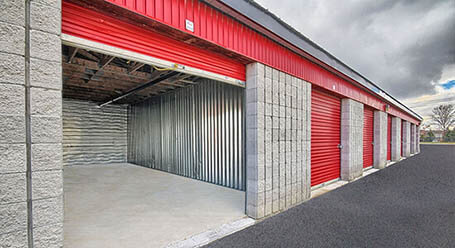If you’re new to real estate investing or seeking to diversify your portfolio, there are numerous assets you can invest in. One popular option is self-storage, an emerging asset class worth an estimated $48 billion and growing.
Self-storage facilities are small, private units that renters can use to store their belongings for either a short or long duration. They’re an excellent asset to add diversity to your real estate portfolio and have strong income potential. You can visit J Post website to know more about self-storage investing.
It’s a form of commercial real estate investment
Self-storage investing entails purchasing or leasing facilities and renting out storage units. These properties provide small, private spaces where people can store items like furniture, extra clothing, and commercial equipment.
These types of real estate investments offer several advantages, such as high ROIs, minimal upkeep, and quick cash flow. Unfortunately, they also carry a degree of risk that may not be suitable for everyone.
Investment in self-storage is a growing industry that’s taking advantage of an expanding market of individuals needing storage solutions. Experts predict it to be one of the most recession-resistant real estate sectors.
Self-storage facilities require a much smaller capital outlay than other real estate investments, making them an attractive option for investors looking to build a diversified portfolio. As a result, they typically have lower occupancies and rents than other properties, allowing them to weather economic downturns better.
It’s a passive income stream
The self-storage industry is experiencing unprecedented growth, providing investors with a great chance to diversify their portfolios. With the increasing amount of physical goods being stored in America, more people need safe and secure places to store them safely.
When investing in a self-storage facility, you can expect consistent cash flow each month as long as the tenants pay their rent on time. Furthermore, you have the option to slightly raise rent and offer additional services such as administrative fees or late fees for extra income.
However, one major drawback to owning a self-storage facility is the time it takes to get operations running smoothly and reach profitability. This implies you might need to be more active in terms of tenant screening, managing leases, and rent payments as well as overseeing maintenance if you want your income stream to be truly passive.
It’s a great way to diversify your portfolio
Financial markets are in a state of flux, leading many investors to diversify their portfolios. Self-storage real estate offers consistent returns with low levels of risk. This makes it an attractive option for portfolio diversification.
Investors also reap the rewards of a diverse tenant base that includes residential, commercial, and business tenants. This provides them with a larger market to compete against and boost their revenue.
Investment opportunities in the self-storage industry exist, such as purchasing shares of a self-storage REIT or owning a facility. These investments offer the convenience of passive investing while also giving you access to the growth potential of this growing sector.
It’s a great way to make money
Are you searching for a lucrative investment that doesn’t involve purchasing residential property? Self-storage could be the ideal solution. With its high returns and low operational expenses, this industry appeals to both investors and owners alike.
Self-storage units provide a reliable income stream, but it’s essential to comprehend how the market operates before making your next investment. Furthermore, keeping your options open is wise since self-storage can remain resilient even during uncertain economic periods.
Finance your facility with a range of financing options, such as SBA loans and debt funds. A knowledgeable commercial mortgage broker can assist in finding the perfect lender for your requirements. They may even negotiate an advantageous interest rate on your loan to make repayment easier.




